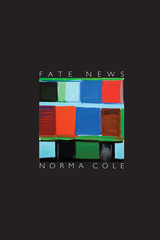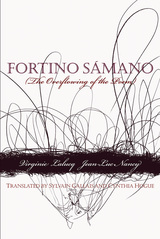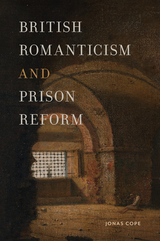116 scholarly books by Omnidawn and 7
start with F
116 scholarly books by Omnidawn and 7
116 scholarly books by Omnidawn
7 start with F start with F
7 start with F start with F

Fate News
Norma Cole
Omnidawn, 2018
All timing all the time! Fate News is poetry in the crosshairs of action (kairos) and clock time (chronos). With a topical setlist in four sections, “Local,” “On-Going,” “Stay Songs,” and “Harmolodics,” Fate News relentlessly pierces the surface of lyric gesture. Its osmotic exchanges and searching encounters vibrate with the clarity of fiercely delicate shouts and murmurs, undertones and overtones. The vision of “Mount Fiasco” is on fire.
[more]

Fortino Sámano
The Overflowing of the Poem
Virginie Lalucq and Jean-Luc Nancy
Omnidawn, 2012
Fortino Sámano (the overflowing of the poem), translated by Cynthia Hogue and Sylvain Gallais, with French on facing pages, is a collaborative work by the emerging French poet, Virginie Lalucq, and the distinguished philosopher, Jean-Luc Nancy. Lalucq wrote the serial poem, Fortino Sámano, after seeing an exhibit of photographs on the Mexican Revolution by Agustin Victor Casasola. Her series is a meditation on the single, extant photograph of Sámano, a Zapatista lieutenant and counterfeiter, which Casasola snapped as Sámano, smoking a last cigar, appeared to stare death nonchalantly in the face moments before his execution by firing squad (it was reported that he himself gave the order to fire). Little is known about Sámano, and Lalucq’s poem makes no attempt to be biographical or historical. Rather, she treats the image itself, the fact that the camera caught the image of life just prior to its end. What, then, does the image represent? She asks. Nancy’s section, Les débordements du poème (The overflowing of the poem), is a series of poetic commentaries on each of the poems in Lalucq’s series. It is a philosophical contemplation of the specific poem, Fortino Sámano, and also, a poetic investigation of the lyric genre, which works hand-in-hand with Lalucq’s poems. Fortino Sámano is an exciting poetic dialogue, and a significant work in poetics, which Hogue and Gallais have brought into English.
[more]
![front cover of from unincorporated territory [guma’]](https://www.bibliovault.org/thumbs/978-1-890650-91-9-thumb.jpg)
from unincorporated territory [guma’]
Craig Santos Perez
Omnidawn, 2014
Craig Santos Perez, a native Chamoru from the Pacific Island of Guåhan (Guam), has lived for two decades away from his homeland. This new collection maps the emotional and geographic cartographies of his various migrations, departures, and arrivals. Through a variety of poetic forms, the poet highlights the importance of origins and customs amidst new American cultures and terrains. Furthermore, this book draws attention to, and protests, the violent currents of colonialism and militarism currently threatening Guåhan, a “strategic” US territory since 1898. The poet memorializes what his people have lost and insists that we must protect and defend what we have left of home. This collection will engage those interested in Pacific literature, multicultural, indigenous poetry, mixed-genre, multilingual experiments, ecopoetics, and those who want to explore intersections between poetry, politics, history, and culture.
[more]
![front cover of from unincorporated territory [hacha]](https://www.bibliovault.org/thumbs/978-1-63243-049-6-thumb.jpg)
from unincorporated territory [hacha]
Craig Santos Perez
Omnidawn, 2017
from unincorporated territory [hacha] is the first book of native Chamorro poet Craig Santos Perez’s ongoing series about his homeland, the Western Pacific Island of Guåhan (Guam). Perez weaves avant-garde, eco-poetic, indigenous, documentary, multilingual, and abstract expressionist modes to tell the complex story of Guam’s people, culture, history, politics, and ecologies. Since its original publication in 2008, [hacha] has received positive reviews, and it has been taught in universities throughout Asia, the Pacific, the United States, Canada, and Europe. This new and revised edition aims to bring the book to a new generation of readers.
[more]
![front cover of from unincorporated territory [lukao]](https://www.bibliovault.org/thumbs/978-1-63243-041-0-thumb.jpg)
from unincorporated territory [lukao]
Craig Santos Perez
Omnidawn, 2017
from unincorporated territory [lukao] is the fourth book in native Chamorro poet Craig Santos Perez’s ongoing series about his homeland, the Western Pacific Island of Guåhan (Guam), and his current home, Hawai?i. He utilizes eco-poetic, decolonial, diasporic, indigenous, documentary, epic, and avant-garde modes to weave stories of creation, birth, migration, food sovereignty, and parenting. This work not only protests the devastating impacts of colonialism, militarism, and environmental injustice across the Pacific, it also expresses a vision of a sustainable and hopeful future.
[more]
![front cover of from unincorporated territory [saina]](https://www.bibliovault.org/thumbs/978-1-890650-46-9-thumb.jpg)
from unincorporated territory [saina]
Craig Santos Perez
Omnidawn, 2010
With the Saina as his figurative vessel—a ship built in modern times as an exact replica of the swift outriggers designed and sailed by the Chamorro people until banned by their oppressors—Craig Santos Perez deftly navigates the complexities in his bracing exploration of the personal, historical, cultural, and natural elements of his native Guam and its people. As the title—from unincorporated territory [saina]—suggests, by understanding where we are from, we can best determine where we are going. Perez collages primary texts and oral histories of the colonial domination and abuse brought by the Spanish, the Japanese, the United States, and the capitalist entertainment/travel industry, with intimate stories of his childhood experiences on Guam, his family’s immigration to the US, and the evocatively fragmentary myths of his ancestors. Resonant too in Perez’s title, and throughout this work, is this poet’s evocation of the unincorporated and unfathomed elements of our natures, as he seeks the means to access an expansiveness that remains inexpressible in any language. Perez is not afraid to press language beyond the territories of ‘the known’ as he investigates both the anguish and the possibilities that horizon as one attempts to communicate the spoken and unspoken languages of one’s native people, while fully appreciating the suffering inherent in every word he will use that is pronounced in, and thus pronounces, the language of their oppressors.
[more]
![front cover of From Unincorporated Territory [åmot]](https://www.bibliovault.org/thumbs/978-1-63243-118-9-thumb.jpg)
From Unincorporated Territory [åmot]
Craig Santos Perez
Omnidawn, 2023
Winner of the National Book Award for Poetry, this collection of experimental and visual poems dives into the history and culture of the poet’s homeland, Guam.
This book is the fifth collection in Craig Santos Perez’s ongoing from unincorporated territory series about the history of his homeland, the western Pacific island of Guåhan (Guam), and the culture of his indigenous Chamoru people. “Åmot” is the Chamoru word for “medicine,” commonly referring to medicinal plants. Traditional Chamoru healers were known as yo’åmte; they gathered åmot in the jungle and recited chants and invocations of taotao’mona, or ancestral spirits, in the healing process.
Through experimental and visual poetry, Perez explores how storytelling can become a symbolic form of åmot, offering healing from the traumas of colonialism, militarism, migration, environmental injustice, and the death of elders.
This book is the fifth collection in Craig Santos Perez’s ongoing from unincorporated territory series about the history of his homeland, the western Pacific island of Guåhan (Guam), and the culture of his indigenous Chamoru people. “Åmot” is the Chamoru word for “medicine,” commonly referring to medicinal plants. Traditional Chamoru healers were known as yo’åmte; they gathered åmot in the jungle and recited chants and invocations of taotao’mona, or ancestral spirits, in the healing process.
Through experimental and visual poetry, Perez explores how storytelling can become a symbolic form of åmot, offering healing from the traumas of colonialism, militarism, migration, environmental injustice, and the death of elders.
[more]
READERS
Browse our collection.
PUBLISHERS
See BiblioVault's publisher services.
STUDENT SERVICES
Files for college accessibility offices.
UChicago Accessibility Resources
home | accessibility | search | about | contact us
BiblioVault ® 2001 - 2024
The University of Chicago Press









